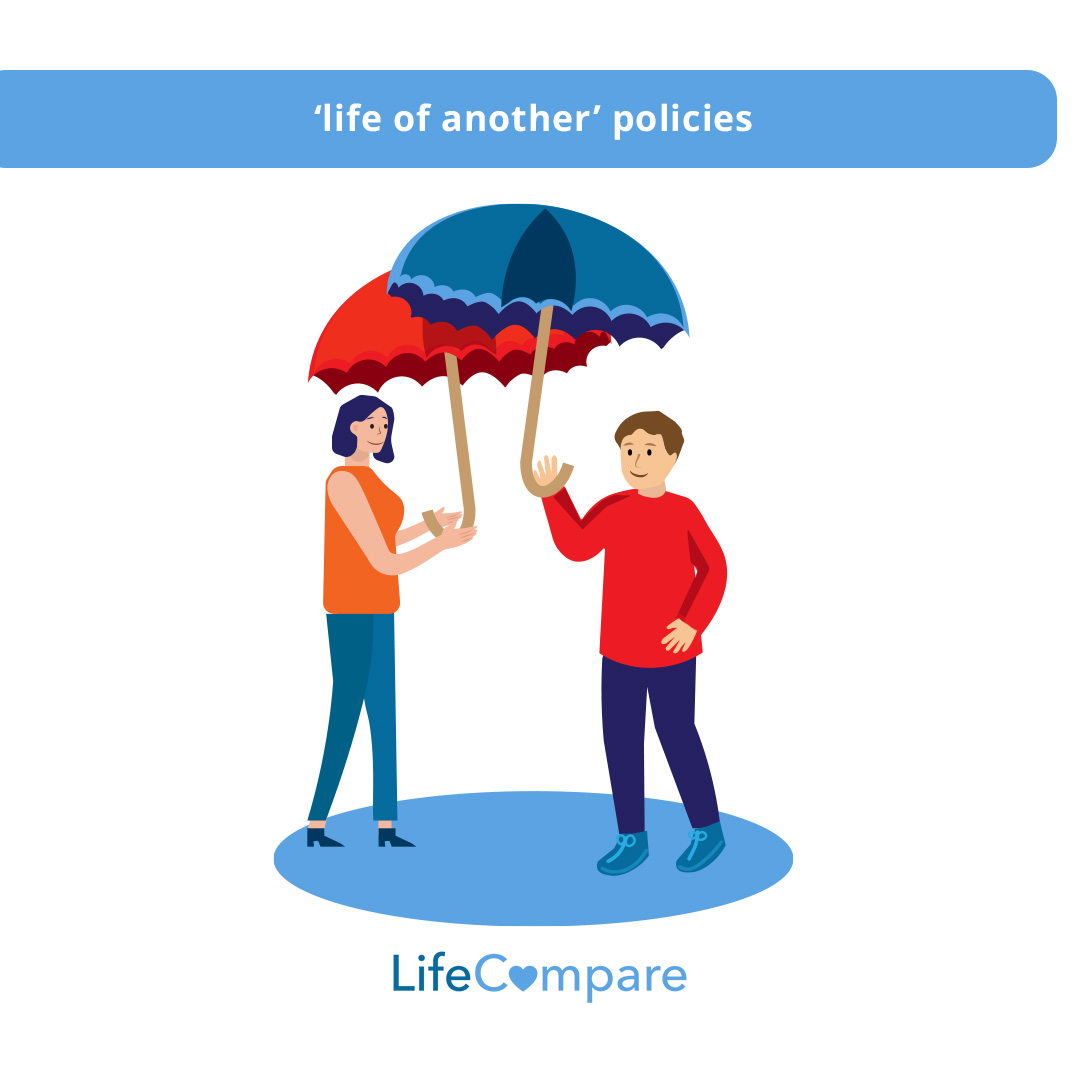Increasing numbers of couples are foregoing marriage and cohabiting with their partners, and parenting as cohabiting partners. The CSO has estimated that there are 91,694 households with cohabiting couples without children, and 85262 households headed by cohabiting couples with children.
A cohabiting couple that lives together in a committed relationship, either a same-sex or opposite-sex relationship, that are neither married nor civil partners may wish the other partner to have the benefit paid by their life insurance if one partner should die.
However, do not assume if you have single life insurance that it will provide protection for your partner should you die, as due to legal and tax implications, they may not benefit immediately or directly from a life insurance pay out and there may be a significant tax burden on the remaining partner if life insurance is not set up appropriately.

Table of content
Benefits of life insurance for cohabiting couples
Life insurance is a valuable form of financial protection and the lump sum provided by life insurance can help to pay for significant expenses for a partner such as a mortgage or rent, outstanding debts, and living expenses should the policyholder die.
A life insurance benefit can be used to replace one lost income should both partners be working or used to provide some financial security if two partners are financially interdependent, one partner is a stay at home parent, for example.
If you are concerned about your funeral expenses being a burden, life insurance can provide a way to pay for this expense for your partner.
Joint life insurance
Joint life insurance can be purchased where the lives of both policyholders are covered for the sum assured, either as joint life insurance which pays out on the first death or as dual life insurance which pays out if both policyholders die.
Joint life insurance can cover the lives of two spouses or business partners who wish to provide financial protection for the remaining spouse or the business in the event of one policyholder dying.
However, joint life insurance policies are usually only available to married spouses or civil partners (aside from business life insurance).
In addition there are legal and tax implications as the benefit paid following a death is paid to the estate of the deceased person. Where the surviving person is a spouse or civil partner, they can inherit this lump sum tax free but this is not the case with cohabiting couples.
Cohabiting couples
Cohabiting couples neither have an automatic right to inherit from their partner, any inheritance they receive must be specified in the will of the deceased partner, nor can they inherit a life insurance lump sum tax free.
Inheritance tax liability
Unfortunately, cohabiting couples are liable for the highest rate of inheritance tax on any inheritance they receive from their partner. Only spouses or civil partners are exempt from inheritance tax ordinarily.
This may mean that anything a cohabiting partner inherits, including life insurance benefit, could be liable for inheritance tax of 33% above a threshold of €16,250.
Life of another cover
If you wish to provide your partner with the financial security of a life insurance pay out, you and your partner have significant financial ties such as a mortgage for a house you share, shared debt, or if you wish to make provision for a partner and you are an unmarried couple, you may need to take out a ‘life of another’ life insurance policy.
In effect each partner takes out a single life insurance policy on the other.
In order to take out ‘life of another’ life insurance, you must have an ‘insurable interest’ in the other person and you must pay the life insurance premiums on that life insurance policy.
What is ‘insurable interest’?
You may insure the life of another if you have an ‘insurable interest’ in their life. This means that you would suffer a financial loss if they died.
Married couples can insure each other without having to prove an ‘insurable interest’. Usually, in any case, married couples or civil partners would most likely take out joint life insurance to provide a lump sum to the remaining spouse or civil partner should one pass away.
If a cohabiting couple have lived together for more than five years, or two years with dependent children, they may have ‘insurable interest’ where they are financially interdependent or one partner works and the other stays at home with children i.e. they can show a financial loss where their cohabiting partner dies.
Taking out two ‘life of another’ policies
To provide each other with a life insurance benefit, where each partner has an ‘insurable interest’ in each other, it is possible to take out two ‘life of another’ insurance policies and each pay each other’s premiums (or pay them from a joint account).
In order to benefit from a ‘life of another’ policy, ie. to receive the lump sum on the death of your partner, you must have paid the premiums on that policy. This means that your partner’s life is the life assured but you are the policy owner and vice versa.
This is also tax efficient as. If you are the owner of a policy on another’s life, you may be paid the benefit tax free. This also has the advantage that the payment is timely as it does not have to go through the process of probate.

Contact us today
If you are concerned about your existing life insurance being unsuitable for your needs when you are cohabiting with your partner, or you are interested in purchasing life insurance to provide financial protection as a cohabiting couple, speak to our insurance advisors today.
Purchasing life insurance as a cohabiting couple has additional legal and financial considerations but it is possible to obtain suitable cover that will give you peace of mind that you and your partner are financially protected should either of you die unexpectedly.
Fill in our online application form or call us and we can discuss life insurance with you today. Don’t put it off as it may be easier and more affordable than you expect to obtain life insurance cover to provide your partner with financial protection or to purchase life insurance policies to provide both of you with protection.




